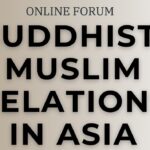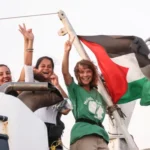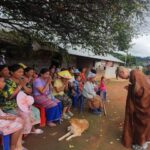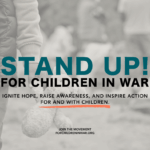
Project Background and Rationale:
To ensure all aspects of a just and peaceful world, INEB, as part of the 2017 Bangkok Consultation, invited 20 Buddhist leaders to learn about violence against children (VAC), within the Mekong region. Since the consultation, the COVID-19 pandemic began in early 2020 which further impacts all forms of violence against children and now needs to be included in all future planning activities.
Through engaged, constructive dialogue with international experts and representatives of secular organizations working in the field of child rights, the Asian Network of Buddhists for Child Protection (ABC) was formed. ABC aims to promote and protect the rights of all children and help to prevent all forms of violence against children. Further reporting and data gathering of the child protection assessment in religious settings is essential to establish a data base. Together ABP and INEB will build upon the work by existing Buddhists organizations to conduct a research study on Child Protection in Buddhist communities, including monastic and Dhamma schools in Myanmar, Cambodia, Vietnam, Laos, and Thailand.
Child protection in Monastic and Dhamma schools in the five countries of the Mekong region is very diverse. For example, in Cambodia, Pagoda-Based Carewas established in April 2006 by The Ministry of Social Affairs, Veterans and Youth Rehabilitation as the policy on Alternative Care for Children with the aim to provides basic needs for children. Whereas, the governments of Myanmar, Vietnam and Thailand do not have specific legal framework or guidelines on child protection in foster care settings. Consequently, it is possible for children in those settings to fall between the cracks as it is assumed that the monastery is responsible for their well-being.
The proposed research is inspired by:
- The global study, Faith and Children’s Rights: A Multi-religious Study on the Convention on the Rights of the Child jointly developed by Arigatou and UNICEF, launched on November 20, 2019. The report highlights the essential role of religious leaders and faith communities to end all forms of violence against children. This is in accordance with the Buddhist philosophy of non-violence and compassion, as well as the universal child rights principles as per the CRC.
- The 10 commitments of the 2017 Panama Declaration on Ending Violence against Children, adopted by more than 500 diverse faith leaders and organizations at the Fifth Forum of the Global Network of Religions for Children (GNRC).
Assumption:
Using a child rights framework, the overall purpose of the research is to carry out an assessment of the situation of the child’s rights that protects children from all forms of violence, in Buddhist communities, including in Monastic and Dhamma schools in Cambodia, Laos, Myanmar, Thailand, and Vietnam
The research has three specific objectives:
- To explore the current situation of violence against children through conducting literature review of the five countries. Synthesize this broad picture with what is known about specific Buddhist communities.
2. Identify and evaluate promising practices and mechanisms from Buddhist organisations to prevent and respond to violence against children.
3. To identify strategies and recommendations for Buddhist leaders and members of the Asian Network of Buddhist for Child Protection (ABC) to prevent and respond to all forms of Violence against Children (VAC) in their communities.
Outcomes:
- ABC members will have gained comprehensive knowledge and information needed to develop and implement their plan of action for ending violence against children in Buddhist communities.
- ABC and INEB will be invited to become a member of the GNRC to contribute to implementing the Panama Commitments on Ending Violence against Children.













